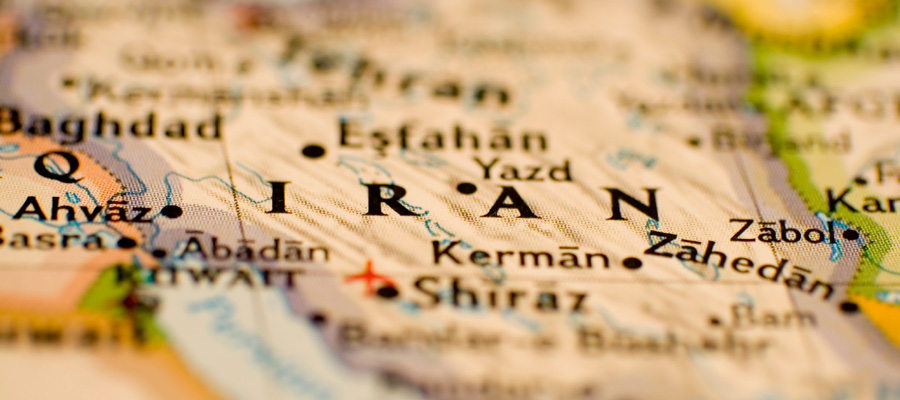The views expressed in our content reflect individual perspectives and do not represent the authoritative views of the Baha'i Faith.
Since I began writing and editing for BahaiTeachings.org eight years ago, several people have sent me links to various websites and articles about the Baha’i Faith. As a result, I’ve seen several excellent, accurate and responsible Baha’i-related sites, and a few of the opposite kind, which I wouldn’t recommend.
The other day someone forwarded me a link to a satirical website called Uncyclopedia, and besides containing a whole raft of intentionally fake, funny misinformation about the Baha’i teachings and principles—and the teachings and principles of other religions, too—it had one characterization of the Baha’i Faith that I found particularly strange. “Baha’i is sort of Islam lite…” the website said.
RELATED: Is Muhammad the Seal of the Prophets?
I appreciate satire, and initially chuckled when I read that line, but then I remembered that I’d heard it before, minus the intentional satirical humor.
Some still erroneously believe that the Baha’i Faith is a sect or an “offshoot” of Islam. Since 19th Century Persia (now Iran) served as the cradle of the Baha’i Faith in its earliest days, that impression continues even among a few otherwise educated people. Despite all the legitimate and accurate information about the Baha’i Faith now available online, some websites still cling to that old misinformation.

So the idea isn’t new, and persists in some quarters. We’ve had many questions on the subject of how the Baha’i Faith relates and compares to Islam from BahaiTeachings.org readers in Muslim countries. To answer those questions, I thought it might be instructive to outline the relationship of the Baha’i Faith to Islam, by offering a short history and then comparing and contrasting the laws and principles of each Faith in this series of articles.
One upfront caveat, however: I make no claim to any erudite scholarship in this area. I’ve been a Baha’i for almost fifty years, and as a Baha’i I’ve studied all of the major global Faiths including Islam—but I do not possess a great deal of scholarly expertise in Islamic theology, jurisprudence and law. Hopefully, those who do will weigh in as we publish the articles in this series, and contribute to the dialogue.
I will say, however, that I have great respect for all the Muslims I know, and as a Baha’i I believe Muhammad was a prophet of God and the Qur’an a Holy Book. I love and respect Muhammad and his teachings, as all Baha’is do.
RELATED: How to Become a Baha’i
That’s because Baha’u’llah—who came from a Muslim background, just as Christ came from a Jewish heritage—specifically honored Muhammad and his teachings. Baha’is see Islam as the parent religion of their Faith, in the same way Judaism gave birth to Christianity. Since Baha’u’llah’s teachings emerged from a Muslim culture and its mystical Sufi belief system, the Baha’i Faith and Islam have some similarities—they both believe in one God, in the validity and exalted station of the religions that came before, and in the sacred nature of the human soul. However, the Baha’i Faith differs significantly from Islam, especially as Islam is practiced today. Let’s take a look, in a general way, at those similarities and differences.
The Similarities and Differences Between Islam and the Baha’i Faith
First, the Baha’i teachings say that the “whole world” should “acknowledge the greatness of Muhammad and all the Heaven-sent Teachers:”
The people of Islam were taught to realize how Jesus came from God and was born of the Spirit, and that He must be glorified of all men. Moses was a prophet of God, and revealed in His day and for the people to whom He was sent, the Book of God.
Muhammad recognized the sublime grandeur of Christ and the greatness of Moses and the prophets. If only the whole world would acknowledge the greatness of Muhammad and all the Heaven-sent Teachers, strife and discord would soon vanish from the face of the earth, and God’s Kingdom would come among men.
The people of Islam who glorify Christ are not humiliated by so doing.
Christ was the Prophet of the Christians, Moses of the Jews — why should not the followers of each prophet recognize and honour the other prophets also? If men could only learn the lesson of mutual tolerance, understanding, and brotherly love, the unity of the world would soon be an established fact. – Abdu’l-Baha, Paris Talks, pp. 48-49.
Recognizing and honoring all the prophets of God not only leads to love, understanding and unity—it also leads to a greater clarity and knowledge about each religion’s unique role in history, and in the progressive revelation of God’s continuing guidance for humanity.
Islam began when Muhammad declared his mission in 610 AD. His monotheistic message ultimately united the warring tribes of the Arabian Peninsula, and contributed to enormous, civilizing advances in jurisprudence, education and spiritual development. For several hundred years after Islam began, its influence created the first universities and led to an explosion of the world’s scientific knowledge. While Europe languished in the Dark Ages, Islam flourished.
Islam, however—like all of the previous major world religions—then began to suffer a decline:
Behold how the sayings and doings of Shi’ih Islam have dulled the joy and fervor of its early days, and tarnished the pristine brilliancy of its light. In its primitive days, whilst they still adhered to the precepts associated with the name of their Prophet, the Lord of mankind, their career was marked by an unbroken chain of victories and triumphs.
As they gradually strayed from the path of their Ideal Leader and Master, as they turned away from the light of God and corrupted the principle of His Divine unity, and as they increasingly centered their attention upon them who were only the revealers of the potency of His Word, their power was turned into weakness, their glory into shame, their courage into fear. Thou dost witness to what a pass they have come. – Baha’u’llah, quoted by Shoghi Effendi in The World Order of Baha’u’llah, pp. 172-173.
This decline among the followers of the radiant light of Muhammad, according to the Baha’i teachings, ultimately led to sectarianism, war and dissolution. Shi’a and Sunni Islam lost their primacy, their ecclesiastical institutions and their Sultanate and Caliphate. When religion declines, the Baha’i teachings assert, it must be renewed. That renewal occurred in mid-19th Century Persia, when Baha’u’llah declared his mission and founded the Baha’i Faith.
Next: The Positive Power of Islamic Law in History
You May Also Like
Comments

















"...we must remember that every religion springs from some root, and just as Christianity sprang from Judaism, our own religion sprang from Islam, and that is why so many of the teachings deduce their proofs from Islam."
(Shoghi Effendi, 5 March 1957, Revised September 1990, in Buddha, Krishna, Zoroaster and Related Subjects, no. 25, in Lights of Guidance, no. 1695)
But as you also rightly point out, this doesn't mean it is an offshoot, something which the authoritative Baha'i writings explicitly ...reject.
So while the Faith cannot literally be seen as any form of "Islam", it does share some terminologies, builds on or references some of Islam's teachings and laws, etc.
As far as the "lite" part, there is some truth to that from the perspective that certain of Islam's laws have been mitigated (or abrogated): e.g., see http://bahai9.com/wiki/Fast_-_rigors_of#There_is_some_rigor_in_the_Fast_but_it_has_been_abated_since_prior_times or http://bahai9.com/wiki/Holy_war#The_law_of_holy_war_has_been_blotted_out_from_the_Book
The second thing I would note is that most Muslims I have met have been very punctilious ...about observing the minute details of the laws. I think they over-emphasize these practices and would do better to focus more on the inner state and the development of spiritual qualities. As a generality, Baha'is tend to focus more on developing qualities and on specifically Baha'i oriented service, such as promoting unity among various peoples.